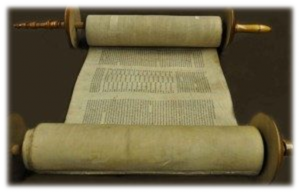GENESIS 4: BALANCING JUSTICE
With only two scenes from Act 1 played out in this Epic Saga as human history begins, I think we need to take a step back to understand at the outset, the background to the Playwright. If we’re to understand His Play, we should understand firstly that the Creator of HIStory sees Himself as the Father of everyone made in His image.[a] This is why He’s written the play down, miraculously preserved it for millenniums, then translated it into almost 2,000 languages so that it’s freely available for us all to read today.
 So then, what initially stood out for me when I read the account of this murder, is the detail. Millenniums before audio recordings and digital files were invented, we have an exact word-for-word record of what was said in a private conversation at the very dawn of human experience. The fact that this chapter has survived time, so that it could be read by someone sitting the 21st Century, is nothing short of a supernatural miracle. This level of detail is almost certainly an example for us of what we should expect from the rest of these Breadcrumbs throughout this year, and indeed from our own life stories when “the books are opened”.[b]
So then, what initially stood out for me when I read the account of this murder, is the detail. Millenniums before audio recordings and digital files were invented, we have an exact word-for-word record of what was said in a private conversation at the very dawn of human experience. The fact that this chapter has survived time, so that it could be read by someone sitting the 21st Century, is nothing short of a supernatural miracle. This level of detail is almost certainly an example for us of what we should expect from the rest of these Breadcrumbs throughout this year, and indeed from our own life stories when “the books are opened”.[b]
As amazing as the written record is to me, however, there’s even more important things to learn about the character and role of the One keeping the record. For one thing, the Creator God is protecting a murderer. [v13-15] At first glance, it’s hard to decide where to position blame when looking at the cause and motive behind the earliest documented murder. If you don’t stop to think while reading, you could blame God for not showing indiscriminate and equal favour for both gifts offered. [v4-5]
As always though, clues are found in the smallest and seemingly insignificant words: “…in time Cain brought some of the fruits…”  In other words, he didn’t bring out the best of his fruit or a choice selection of his first-fruits. Abel, on the other hand, brought “…fat portions from some of the firstborn of his flock…” The Creator God is able to judge the thoughts of our heart.[c] It seems clear from the script that the one whose name means “brought forth” and “acquired” (Cain) didn’t bring forth the best of what he had acquired. In response, Father God doesn’t discuss the “sacrifice”. As a father would teacher his son, Father God perfectly balances justice with mercy. He explains to His image-bearer what actions result in being accepted, then warns Cain of the destructive force behind his behaviour. [v6-7]
In other words, he didn’t bring out the best of his fruit or a choice selection of his first-fruits. Abel, on the other hand, brought “…fat portions from some of the firstborn of his flock…” The Creator God is able to judge the thoughts of our heart.[c] It seems clear from the script that the one whose name means “brought forth” and “acquired” (Cain) didn’t bring forth the best of what he had acquired. In response, Father God doesn’t discuss the “sacrifice”. As a father would teacher his son, Father God perfectly balances justice with mercy. He explains to His image-bearer what actions result in being accepted, then warns Cain of the destructive force behind his behaviour. [v6-7]
Rather than admitting to error, saying sorry, and asking for help to control his emotions, Cain ignored Father God’s words and allowed sin through the door. As the Creator’s epic storyline progresses, this first-stage-choice towards doing what’s right is later called “repentance”.[d] Instead of repenting and making a U-turn in his heart when the opportunity came, Cain instead took matters into his own hands with disastrous consequences especially for the innocent. [v8] His heart attitude is then clearly seen in his responses to Father God. He is insolent, he lies, and he won’t take responsibility. [v9] We can’t hide anything from our Maker who is both omnipresent (ever-present) and omniscient (all-knowing).[e] And now, for the first time since the foundations of the earth were laid, a human image-bearer is under a curse. [v11-12]
 However, the heart of a good parent will always say: “No matter what my kids do wrong, I’ll stand by them as long as I can.” So immediate mercy floods into God’s justice! As soon as Cain cried out for help, his Father God quickly hands out undeserved love and protection!!! [v15] So then, before I’ve read 4 chapters in this epic saga that would take 3 years to read if I read one chapter a day, I can see a huge difference between me (an image of the Living God) and this God who made me. I wouldn’t have been so lenient on Cain after he killed an innocent person. I’d say: “Tough luck. If someone now kills you, this is a Just consequence as a result of you killing someone. Fearing that your life is in danger 24/7 is now the only way for you to learn just how awful you’ve been, not just for Abel who now has no life left to live, but for his parents left behind. Suck it up and don’t come crying to me for mercy.”
However, the heart of a good parent will always say: “No matter what my kids do wrong, I’ll stand by them as long as I can.” So immediate mercy floods into God’s justice! As soon as Cain cried out for help, his Father God quickly hands out undeserved love and protection!!! [v15] So then, before I’ve read 4 chapters in this epic saga that would take 3 years to read if I read one chapter a day, I can see a huge difference between me (an image of the Living God) and this God who made me. I wouldn’t have been so lenient on Cain after he killed an innocent person. I’d say: “Tough luck. If someone now kills you, this is a Just consequence as a result of you killing someone. Fearing that your life is in danger 24/7 is now the only way for you to learn just how awful you’ve been, not just for Abel who now has no life left to live, but for his parents left behind. Suck it up and don’t come crying to me for mercy.”
The rest of this chapter can bring up a lot of questions such as: How did Cain get a wife when there were only three people on the planet? Or, how can you build a city when there’s no one to live in it? [v17] The time lapse is covered in a later Breadcrumb. For now, I want to point out some things that have interested me:
- The incredible detail in a record that’s now millenniums old shows that the God who knows even the stars by their name[f], knows and remembers everything.[g]
- Father God keeps a record of what we accomplish in this life. [v19-22] I was interested in Jubal making musical instruments and wondered if it connected with the origins of our word “jubilation”!
- Rather than evolving into better people over time, arrogance and sin seemed to increase with time. [v23-24]
- Just because boys were recorded, it didn’t mean that girls weren’t born in the meantime. [v25] This is Father’s God’s diary. So following the family line down through the boys (just as the boys carry down the family surname today) shouldn’t reflect anything beyond a family tree that’s recorded in this way for an important reason later.
- It’s at this point, after many layers of the family line have been birthed, when people began to “call on” and/or “proclaim” (publicly preach) the Name of the Lord. [v26] This seemingly small note indicates something very significant. The relationship-gap seems to have widened between the general population and their Father God so that some have responded (in a bid to redress the gap and turn their family/friends back to their Maker) either by “calling” to God in prayer or else “proclaiming” His Name on the street corners, just as they do today.
Throughout the Creator’s epic Play, names mean something. Taking time to look up their meanings, will open up for you more treasures of hidden wealth that has been stored in secret places.[h] Cain, for example, means “brought forth” or “acquired”. But instead of acquiring wisdom from God’s advice, he “brought forth” sin and death. Seth means “granted”, “placed” or “appointed” and Enosh means “mankind”. [v25-26] So at a time when you may be wondering what else could be granted to “mankind”, humans began to “call upon/proclaim” the Name of the Lord.
If every story deserves a happy ending, in response to their call at the end of just 4 short chapters, Father God sets about writing a divine redemptive story that, from the beginning through to the end, has only ever been about getting humanity placed in their permanent home with Him, and appointed to the position they were designed for: co-rulers in His Kingdom.
CLICK to return to today’s “Daily Breadcrumbs”
[a] Deuteronomy 32:6; Psalm 2:7, 68:5 and 103:13; Isaiah 9:6, 63:16 and 64:8; Jeremiah 1:5; Malachi 2:10 and 3:17
[b] Daniel 7:10 and Revelation 20:12
[c] Genesis 6:5; Jeremiah 11:20; Matthew 15:19; Hebrews 4:12
[d] 1 Kings 8:47
[e] Psalm 139:7-12
[f] Psalm 147:4
[g] Exodus 33:17; Psalm 91:14; Isaiah 43:1
[h] Isaiah 45:3